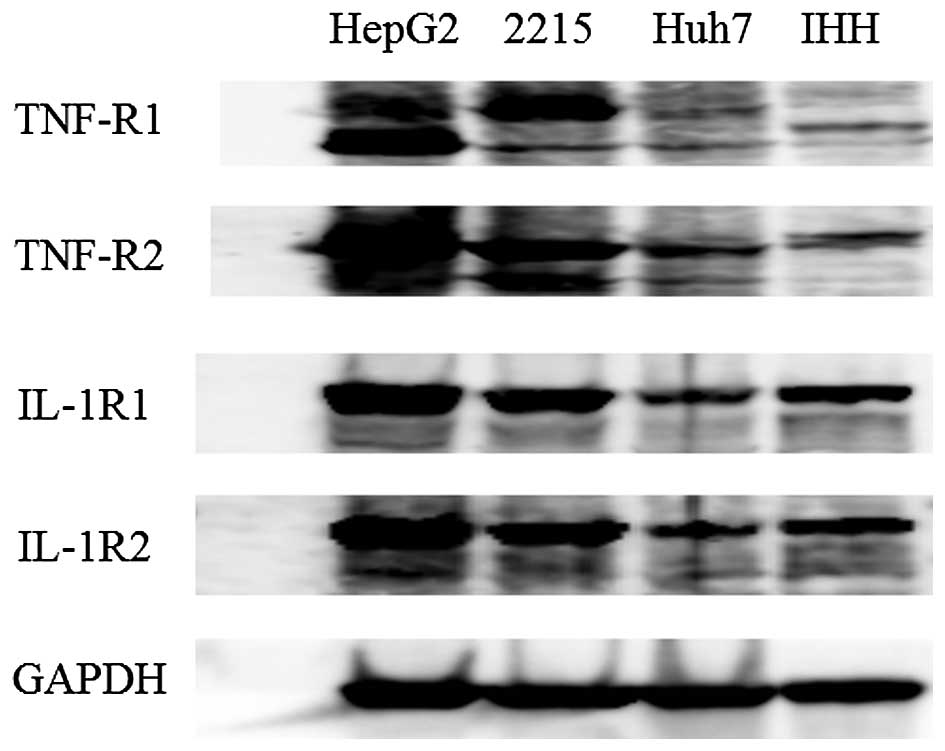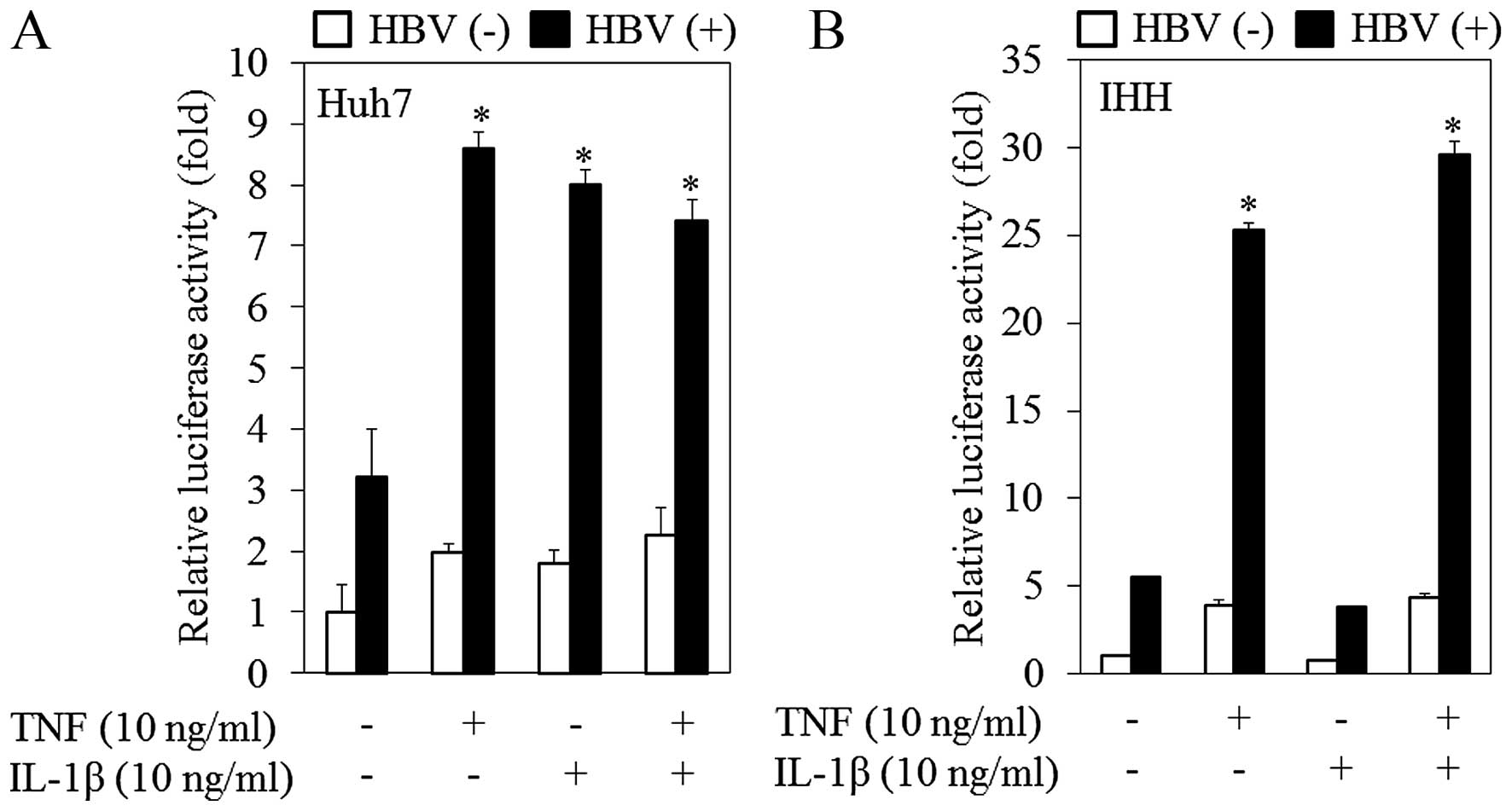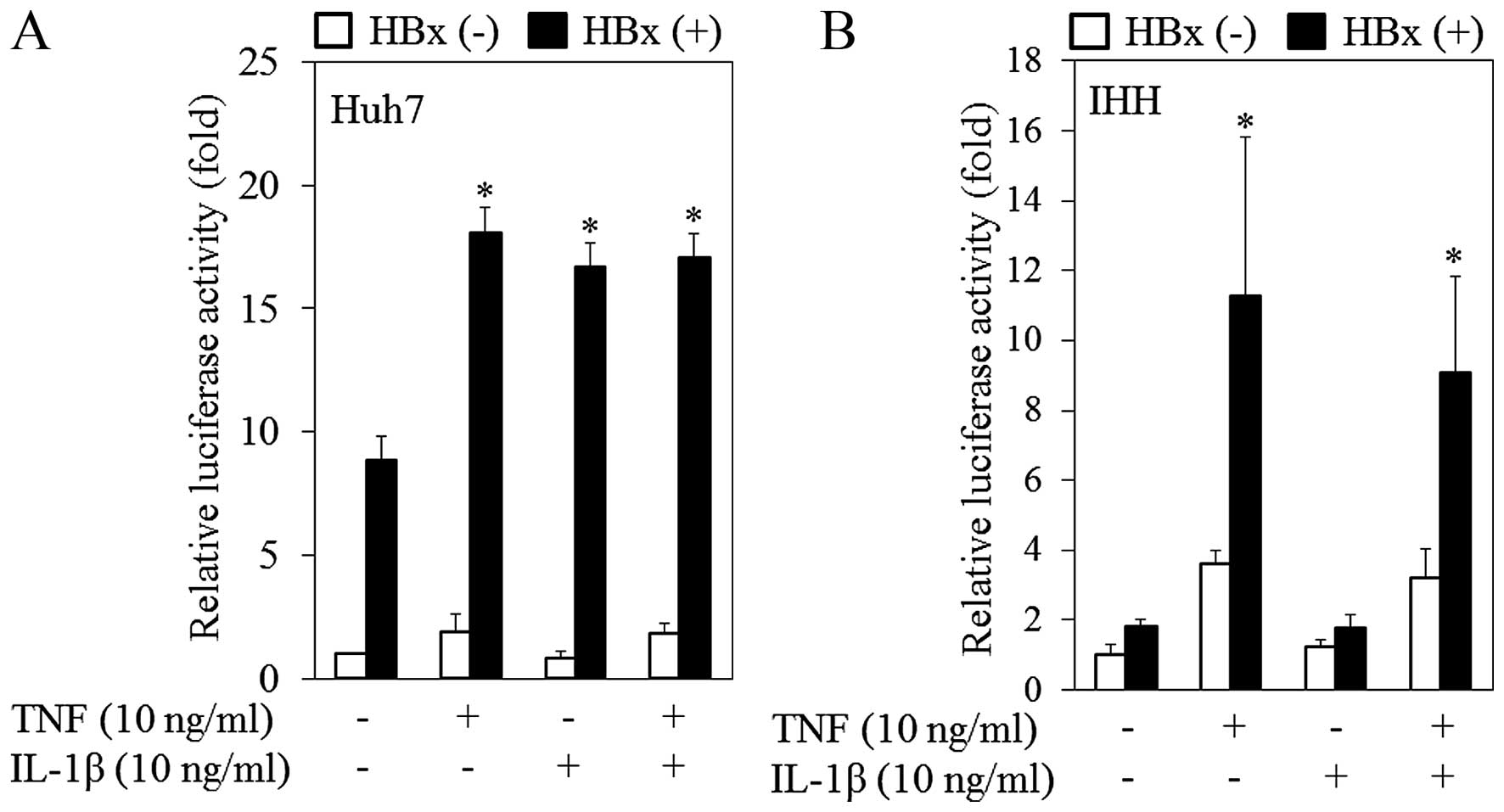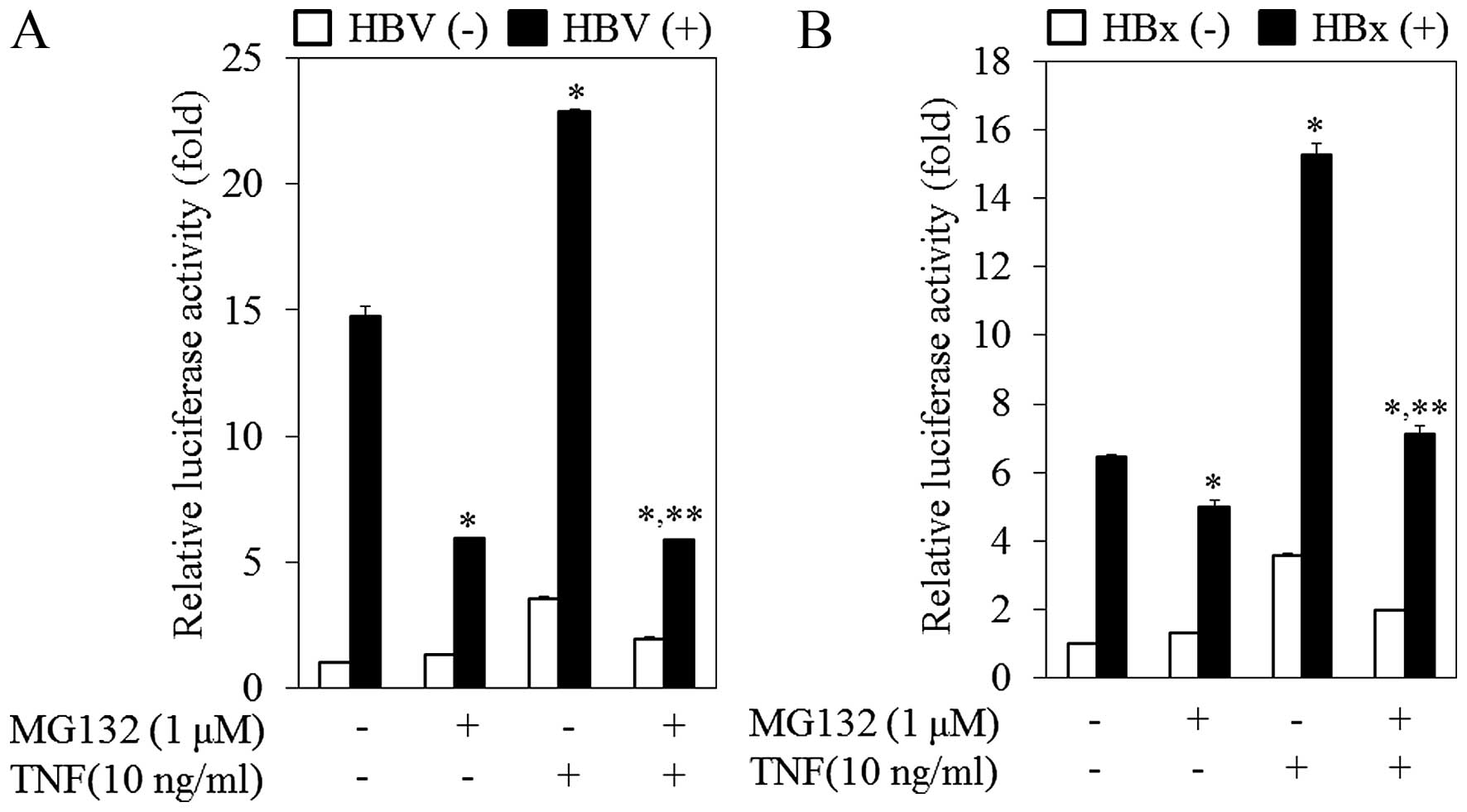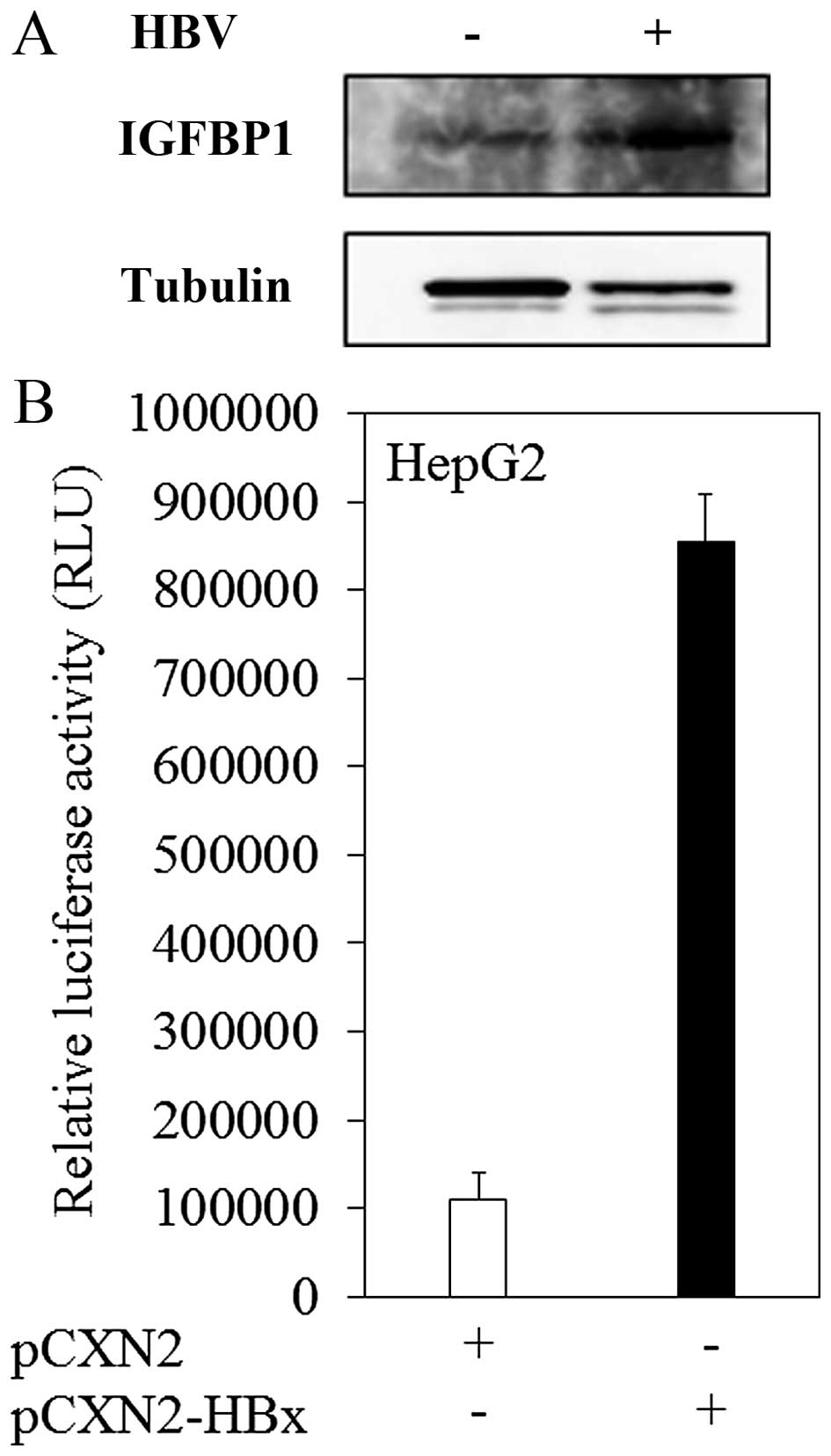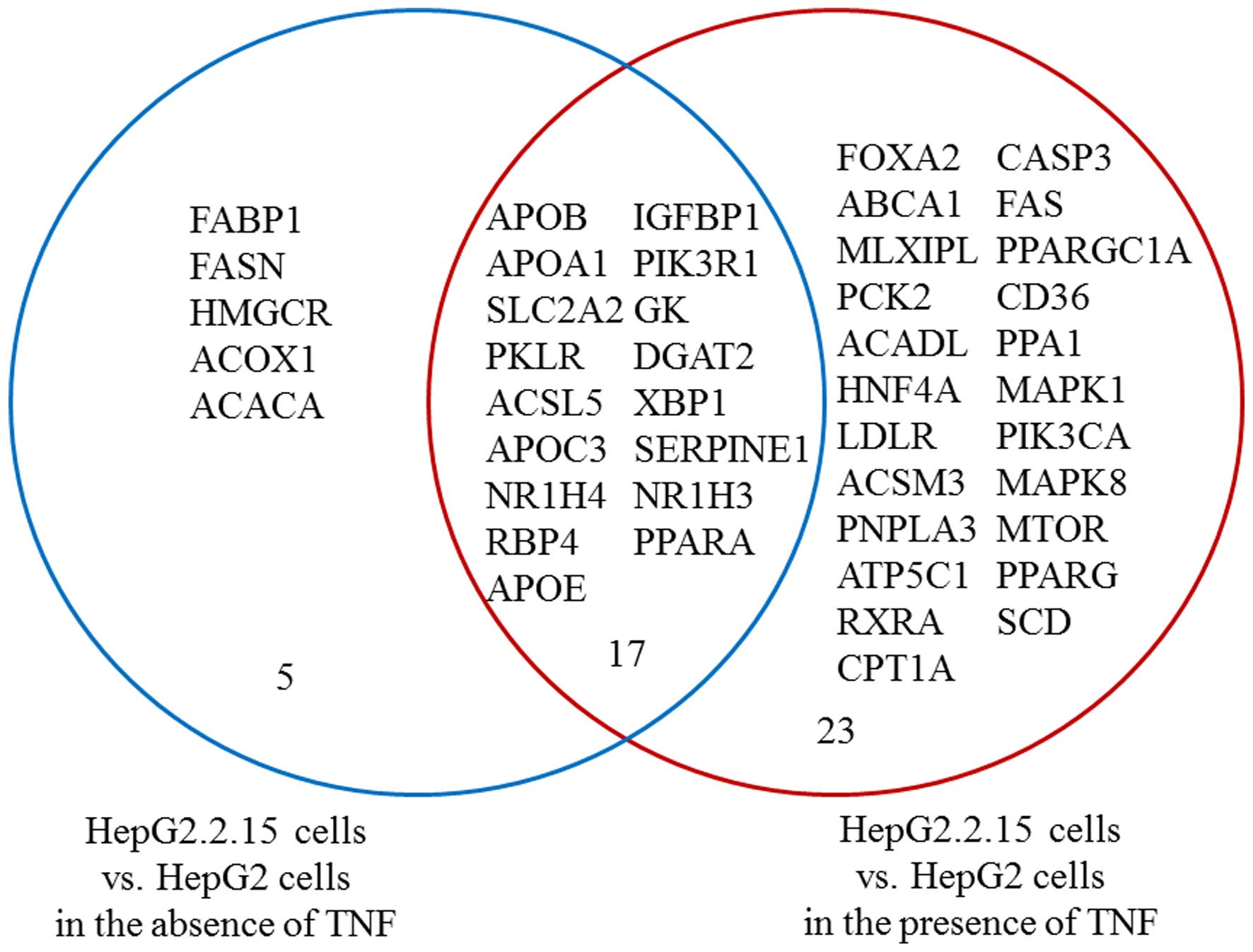|
1
|
de Martel C, Maucort-Boulch D, Plummer M
and Franceschi S: World-wide relative contribution of hepatitis B
and C viruses in hepatocellular carcinoma. Hepatology.
62:1190–1200. 2015. View Article : Google Scholar : PubMed/NCBI
|
|
2
|
McMahon BJ: Chronic hepatitis B virus
infection. Med Clin North Am. 98:39–54. 2014. View Article : Google Scholar
|
|
3
|
Khalili M, Lombardero M, Chung RT,
Terrault NA, Ghany MG, Kim WR, Lau D, Lisker-Melman M, Sanyal A and
Lok AS: HBRN: Diabetes and prediabetes in patients with hepatitis B
residing in North America. Hepatology. 62:1364–1374. 2015.
View Article : Google Scholar : PubMed/NCBI
|
|
4
|
Kaneko M, Watashi K, Kamisuki S, Matsunaga
H, Iwamoto M, Kawai F, Ohashi H, Tsukuda S, Shimura S, Suzuki R, et
al: A novel tricyclic polyketide, vanitaracin A, specifically
inhibits the entry of hepatitis B and D viruses through targeting
NTCP. J Virol. 89:11945–11953. 2015. View Article : Google Scholar : PubMed/NCBI
|
|
5
|
Lau JY, Sheron N, Nouri-Aria KT, Alexander
GJ and Williams R: Increased tumor necrosis factor-alpha receptor
number in chronic hepatitis B virus infection. Hepatology.
14:44–50. 1991. View Article : Google Scholar : PubMed/NCBI
|
|
6
|
González-Amaro R, García-Monzón C,
García-Buey L, Moreno-Otero R, Alonso JL, Yagüe E, Pivel JP,
López-Cabrera M, Fernández-Ruiz E and Sánchez-Madrid F: Induction
of tumor necrosis factor alpha production by human hepatocytes in
chronic viral hepatitis. J Exp Med. 179:841–848. 1994. View Article : Google Scholar : PubMed/NCBI
|
|
7
|
Geneva-Popova M and Murdjeva M: Study on
proinflammatory cytokines (IL-1 beta, IL-6, TNF-alpha) and IL-2 in
patients with acute hepatitis B. Folia Med (Plovdiv). 41:78–81.
1999.
|
|
8
|
Daniels HM, Meager A, Eddleston AL,
Alexander GJ and Williams R: Spontaneous production of tumour
necrosis factor alpha and interleukin-1 beta during
interferon-alpha treatment of chronic HBV infection. Lancet.
335:875–877. 1990. View Article : Google Scholar : PubMed/NCBI
|
|
9
|
Wieser V, Moschen AR and Tilg H:
Inflammation, cytokines and insulin resistance: a clinical
perspective. Arch Immunol Ther Exp (Warsz). 61:119–125. 2013.
View Article : Google Scholar
|
|
10
|
Mehta NN, McGillicuddy FC, Anderson PD,
Hinkle CC, Shah R, Pruscino L, Tabita-Martinez J, Sellers KF,
Rickels MR and Reilly MP: Experimental endotoxemia induces adipose
inflammation and insulin resistance in humans. Diabetes.
59:172–181. 2010. View Article : Google Scholar
|
|
11
|
Sasaki Y: Insulin resistance and
hepatocarcinogenesis. Clin J Gastroenterol. 3:271–278. 2010.
View Article : Google Scholar : PubMed/NCBI
|
|
12
|
Karabulut S, Duranyıldız D, Tas F, Gezer
U, Akyüz F, Serilmez M, Ozgür E, Yasasever CT, Vatansever S and
Aykan NF: Clinical significance of serum circulating insulin-like
growth factor-1 (IGF-1) mRNA in hepatocellular carcinoma. Tumour
Biol. 35:2729–2739. 2014. View Article : Google Scholar
|
|
13
|
Hwang DL, Huang SP, Lan WS and Lee PD:
Elevated insulin, proinsulin and insulin-like growth factor-binding
protein-1 in liver disease. Growth Horm IGF Res. 13:316–321. 2003.
View Article : Google Scholar : PubMed/NCBI
|
|
14
|
Dai B, Ruan B, Wu J, Wang J, Shang R, Sun
W, Li X, Dou K, Wang D and Li Y: Insulin-like growth factor binding
protein-1 inhibits cancer cell invasion and is associated with poor
prognosis in hepatocellular carcinoma. Int J Clin Exp Pathol.
7:5645–5654. 2014.PubMed/NCBI
|
|
15
|
Cao Y, Nimptsch K, Shui IM, Platz EA, Wu
K, Pollak MN, Kenfield SA, Stampfer MJ and Giovannucci EL:
Prediagnostic plasma IGFBP-1, IGF-1 and risk of prostate cancer.
Int J Cancer. 136:2418–2426. 2015. View Article : Google Scholar :
|
|
16
|
Wu S, Kanda T, Imazeki F, Arai M,
Yonemitsu Y, Nakamoto S, Fujiwara K, Fukai K, Nomura F and Yokosuka
O: Hepatitis B virus e antigen downregulates cytokine production in
human hepatoma cell lines. Viral Immunol. 23:467–476. 2010.
View Article : Google Scholar : PubMed/NCBI
|
|
17
|
Niwa H, Yamamura K and Miyazaki J:
Efficient selection for high-expression transfectants with a novel
eukaryotic vector. Gene. 108:193–199. 1991. View Article : Google Scholar : PubMed/NCBI
|
|
18
|
Kanda T, Yokosuka O, Imazeki F, Yamada Y,
Imamura T, Fukai K, Nagao K and Saisho H: Hepatitis B virus X
protein (HBx)-induced apoptosis in HuH-7 cells: influence of HBV
genotype and basal core promoter mutations. Scand J Gastroenterol.
39:478–485. 2004. View Article : Google Scholar : PubMed/NCBI
|
|
19
|
Oropeza CE, Li L and McLachlan A:
Differential inhibition of nuclear hormone receptor-dependent
hepatitis B virus replication by the small heterodimer partner. J
Virol. 82:3814–3821. 2008. View Article : Google Scholar : PubMed/NCBI
|
|
20
|
Blight KJ, Kolykhalov AA and Rice CM:
Efficient initiation of HCV RNA replication in cell culture.
Science. 290:1972–1974. 2000. View Article : Google Scholar : PubMed/NCBI
|
|
21
|
Ray RB, Meyer K and Ray R: Hepatitis C
virus core protein promotes immortalization of primary human
hepatocytes. Virology. 271:197–204. 2000. View Article : Google Scholar : PubMed/NCBI
|
|
22
|
Sasaki R, Kanda T, Wu S, Nakamoto S, Haga
Y, Jiang X, Nakamura M, Shirasawa H and Yokosuka O: Association
between hepatitis B virus and MHC class I polypeptide-related chain
A in human hepatocytes derived from human-mouse chimeric mouse
liver. Biochem Biophys Res Commun. 464:1192–1195. 2015. View Article : Google Scholar : PubMed/NCBI
|
|
23
|
Wu S, Kanda T, Imazeki F, Nakamoto S,
Tanaka T, Arai M, Roger T, Shirasawa H, Nomura F and Yokosuka O:
Hepatitis B virus e antigen physically associates with
receptor-interacting serine/threonine protein kinase 2 and
regulates IL-6 gene expression. J Infect Dis. 206:415–420. 2012.
View Article : Google Scholar : PubMed/NCBI
|
|
24
|
Lang CH, Nystrom GJ and Frost RA:
Regulation of IGF binding protein-1 in hep G2 cells by cytokines
and reactive oxygen species. Am J Physiol. 276:G719–G727.
1999.PubMed/NCBI
|
|
25
|
Hotamisligil GS, Peraldi P, Budavari A,
Ellis R, White MF and Spiegelman BM: IRS-1-mediated inhibition of
insulin receptor tyrosine kinase activity in TNF-alpha- and
obesity-induced insulin resistance. Science. 271:665–668. 1996.
View Article : Google Scholar : PubMed/NCBI
|
|
26
|
Aguirre V, Uchida T, Yenush L, Davis R and
White MF: The c-Jun NH(2)-terminal kinase promotes insulin
resistance during association with insulin receptor substrate-1 and
phosphorylation of Ser(307). J Biol Chem. 275:9047–9054. 2000.
View Article : Google Scholar : PubMed/NCBI
|
|
27
|
Yuan M, Konstantopoulos N, Lee J, Hansen
L, Li ZW, Karin M and Shoelson SE: Reversal of obesity- and
diet-induced insulin resistance with salicylates or targeted
disruption of Ikkbeta. Science. 293:1673–1677. 2001. View Article : Google Scholar : PubMed/NCBI
|
|
28
|
Arkan MC, Hevener AL, Greten FR, Maeda S,
Li ZW, Long JM, Wynshaw-Boris A, Poli G, Olefsky J and Karin M:
IKK-beta links inflammation to obesity-induced insulin resistance.
Nat Med. 11:191–198. 2005. View
Article : Google Scholar : PubMed/NCBI
|
|
29
|
Cai D, Yuan M, Frantz DF, Melendez PA,
Hansen L, Lee J and Shoelson SE: Local and systemic insulin
resistance resulting from hepatic activation of IKK-beta and
NF-kappaB. Nat Med. 11:183–190. 2005. View
Article : Google Scholar : PubMed/NCBI
|
|
30
|
Donath MY and Shoelson SE: Type 2 diabetes
as an inflammatory disease. Nat Rev Immunol. 11:98–107. 2011.
View Article : Google Scholar : PubMed/NCBI
|
|
31
|
Stienstra R, Tack CJ, Kanneganti TD,
Joosten LA and Netea MG: The inflammasome puts obesity in the
danger zone. Cell Metab. 15:10–18. 2012. View Article : Google Scholar : PubMed/NCBI
|
|
32
|
He J, Usui I, Ishizuka K, Kanatani Y,
Hiratani K, Iwata M, Bukhari A, Haruta T, Sasaoka T and Kobayashi
M: Interleukin-1alpha inhibits insulin signaling with
phosphorylating insulin receptor substrate-1 on serine residues in
3T3-L1 adipocytes. Mol Endocrinol. 20:114–124. 2006. View Article : Google Scholar
|
|
33
|
Kamari Y, Shaish A, Vax E, Shemesh S,
Kandel-Kfir M, Arbel Y, Olteanu S, Barshack I, Dotan S, Voronov E,
et al: Lack of interleukin-1α or interleukin-1β inhibits
transformation of steatosis to steatohepatitis and liver fibrosis
in hypercholesterolemic mice. J Hepatol. 55:1086–1094. 2011.
View Article : Google Scholar : PubMed/NCBI
|
|
34
|
Haga Y, Kanda T, Sasaki R, Nakamura M,
Nakamoto S and Yokosuka O: Nonalcoholic fatty liver disease and
hepatic cirrhosis: comparison with viral hepatitis-associated
steatosis. World J Gastroenterol. 21:12989–12995. 2015. View Article : Google Scholar : PubMed/NCBI
|
|
35
|
Na TY, Shin YK, Roh KJ, Kang SA, Hong I,
Oh SJ, Seong JK, Park CK, Choi YL and Lee MO: Liver X receptor
mediates hepatitis B virus X protein-induced lipogenesis in
hepatitis B virus-associated hepatocellular carcinoma. Hepatology.
49:1122–1131. 2009. View Article : Google Scholar
|
|
36
|
Wang Q, Zhang WY, Ye LH and Zhang XD: A
mutant of HBx (HBxDelta127) promotes hepatoma cell growth via
sterol regulatory element binding protein 1c involving
5-lipoxygenase. Acta Pharmacol Sin. 31:367–374. 2010. View Article : Google Scholar : PubMed/NCBI
|
|
37
|
Kim JY, Song EH, Lee HJ, Oh YK, Choi KH,
Yu DY, Park SI, Seong JK and Kim WH: HBx-induced hepatic steatosis
and apoptosis are regulated by TNFR1- and NF-kappaB-dependent
pathways. J Mol Biol. 397:917–931. 2010. View Article : Google Scholar : PubMed/NCBI
|
|
38
|
Kim KH, Shin HJ, Kim K, Choi HM, Rhee SH,
Moon HB, Kim HH, Yang US, Yu DY and Cheong J: Hepatitis B virus X
protein induces hepatic steatosis via transcriptional activation of
SREBP1 and PPARgamma. Gastroenterology. 132:1955–1967. 2007.
View Article : Google Scholar : PubMed/NCBI
|
|
39
|
Degenhardt T, Matilainen M, Herzig KH,
Dunlop TW and Carlberg C: The insulin-like growth factor-binding
protein 1 gene is a primary target of peroxisome
proliferator-activated receptors. J Biol Chem. 281:39607–39619.
2006. View Article : Google Scholar : PubMed/NCBI
|
|
40
|
Banerjee S, Saito K, Ait-Goughoulte M,
Meyer K, Ray RB and Ray R: Hepatitis C virus core protein
upregulates serine phosphorylation of insulin receptor substrate-1
and impairs the downstream akt/protein kinase B signaling pathway
for insulin resistance. J Virol. 82:2606–2612. 2008. View Article : Google Scholar :
|
|
41
|
Bose SK, Shrivastava S, Meyer K, Ray RB
and Ray R: Hepatitis C virus activates the mTOR/S6K1 signaling
pathway in inhibiting IRS-1 function for insulin resistance. J
Virol. 86:6315–6322. 2012. View Article : Google Scholar : PubMed/NCBI
|















